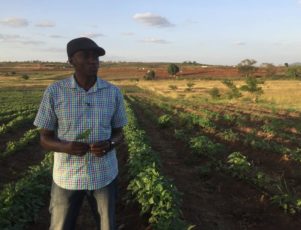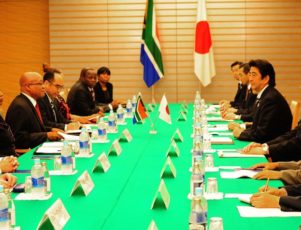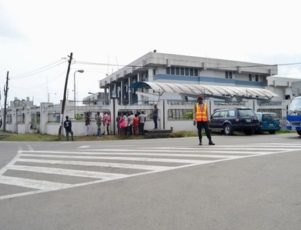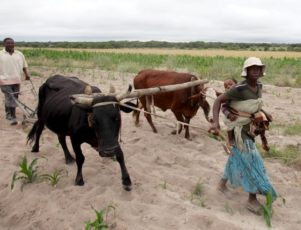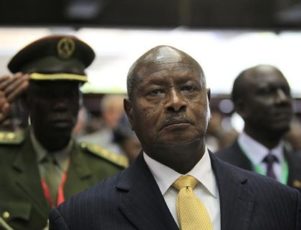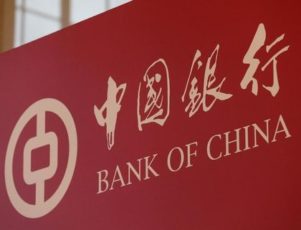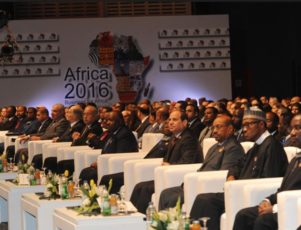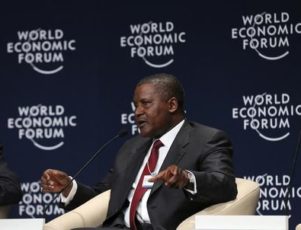Ojay Greene is a business seeking to improve lives in East Africa by working with smallholder farmers.
With consumer consciousness being on the rise, demand is high for products to be sourced locally, ethically and sustainably. The food industry in particular is noticing a trend towards a more aware buyer and while popularity may make some companies jump on the bandwagon, one has set a precedent for genuine philanthropic and ecological concern. Only two years in the running and already winning big investors, Ojay Greene is going for it full-heartedly and making changes for the better.
The brainchild of Kenyan born Yvette Ondachi, the agribusiness seeks to address the key problem that faces small-scale farmers in Kenya, the inability to contend with their larger counterparts. At present a mere 5% of the country’s fruit and vegetable suppliers hold the monopoly on supermarkets, providing them with 80% of their produce. Rural farmers have little chance to compete without the support and knowledge of a company like Ojay Greene, which is creating inroads for them to sell to the big buyers.
At the roots
A small enterprise themselves, the business is run mainly by a dedicated team of four based in the country’s capital Nairobi. Headed by founder and managing director Ondachi who set up Ojay Greene in March, 2014 the venture has quickly acquired a solid client base. Currently working with over 200 smallholder farmers they connect the rural producers in contracted terms with the likes of Naivas Supermarket and the Fairmont Hotels and Resorts.
To optimize the impact of their business model and share their philosophy and knowledge, Ojay Greene offers a range of services but the area in which they excel and have gained most success is food production. Concerned with enhancing small, rural agriculturists, they work alongside the farmers, offering solutions, training and providing market links to long-standing clients in order to help each one reach full potential.
“If we have professionals with a sense of justice and strong sense of determination, they will join the entrepreneurs in trying to shape our society,” said founder Yvette Ondachi.
Lady with the “greene” fingers

Yvette Ondachi
The lady behind it all, with experience both academic and vocational, Yvette Ondachi not only has a vision, she also has the means to provide all the services her company supplies. After studying Biochemistry & Chemistry at the University of Nairobi, the young entrepreneur worked for 15 years in pharmaceutical sales and marketing. After traveling all over East Africa, what struck her most was the great divide between rich and poor.
Ondachi’s decision to step away from a lucrative and stable career, to embark on a risky but now highly successful entrepreneurial adventure, was fueled by the desire to bridge this divide and to make a change to the poverty levels in her country. Despite now having a burgeoning business model everyday still remains a challenge. “Entrepreneurship is definitely not a walk in the park especially because the solutions we are giving smallholder farmers have to do with behavior change,” Ondachi acknowledges.
Key to the future
On the 24th of July, 2015, the company won the Pitch for Impact 100k competition, receiving an investment of $100,000 from Steve Case, founder of AOL. Having already won a big investment and having gained partnerships from leading supermarket chains, it is clear that not only those involved see great potential. “Ojay Greene represents the promise that Africa is truly open for business,” said Steve Case.
It is the hoped that smallholder farmers will continue to embrace the changes in return for a more profitable future. Already the company has increased the income of more than 30 growers by up to 40% and improved the lives of many. Ondachi and her team are intent on extending their invaluable work further, welcoming all who wish to participate into the Ojay Greene care. However, they remain realistic. Change doesn’t happen overnight but little by little, but the incorporation of new methods and the creation of new solid partnerships between rural and urban are starting to bear fruit.

